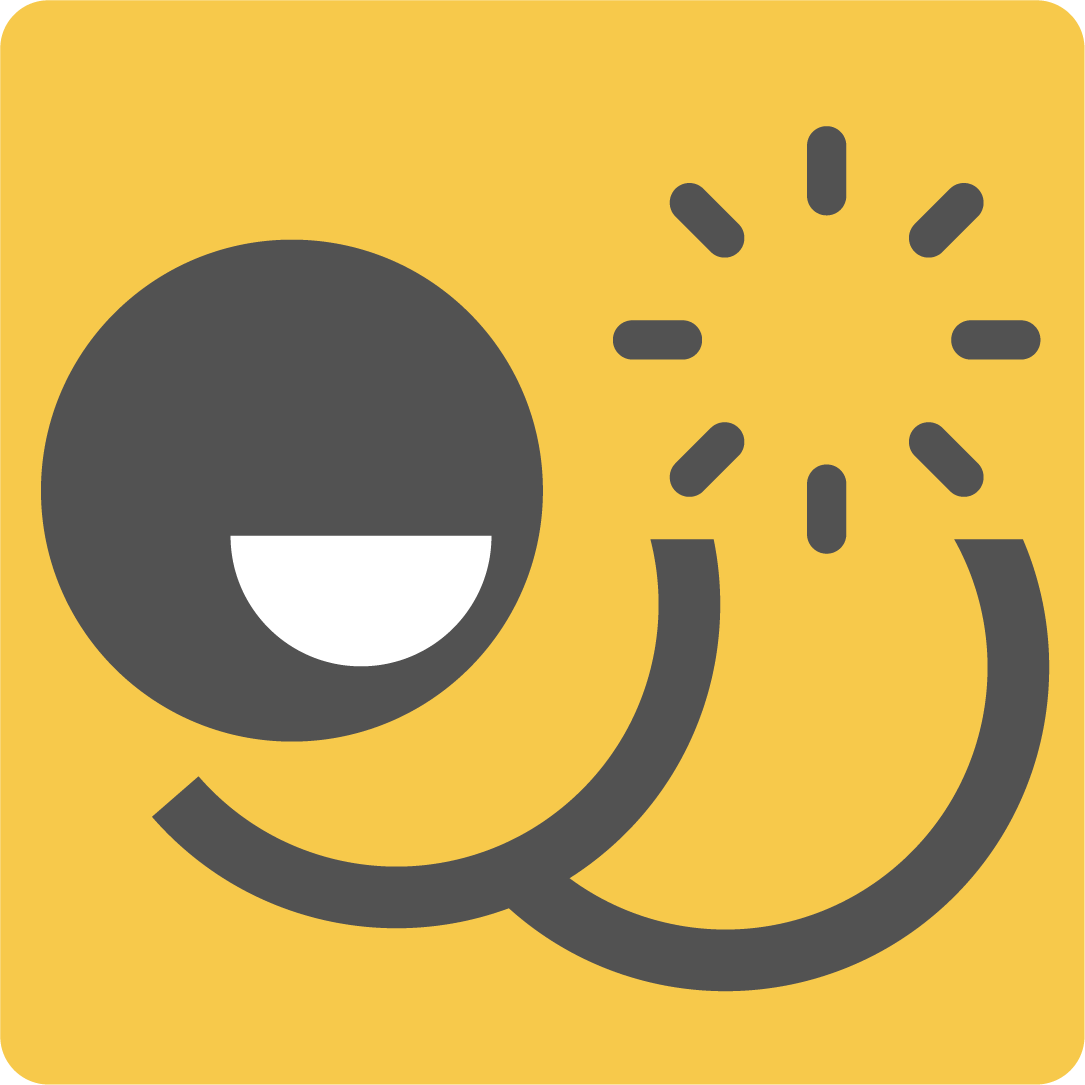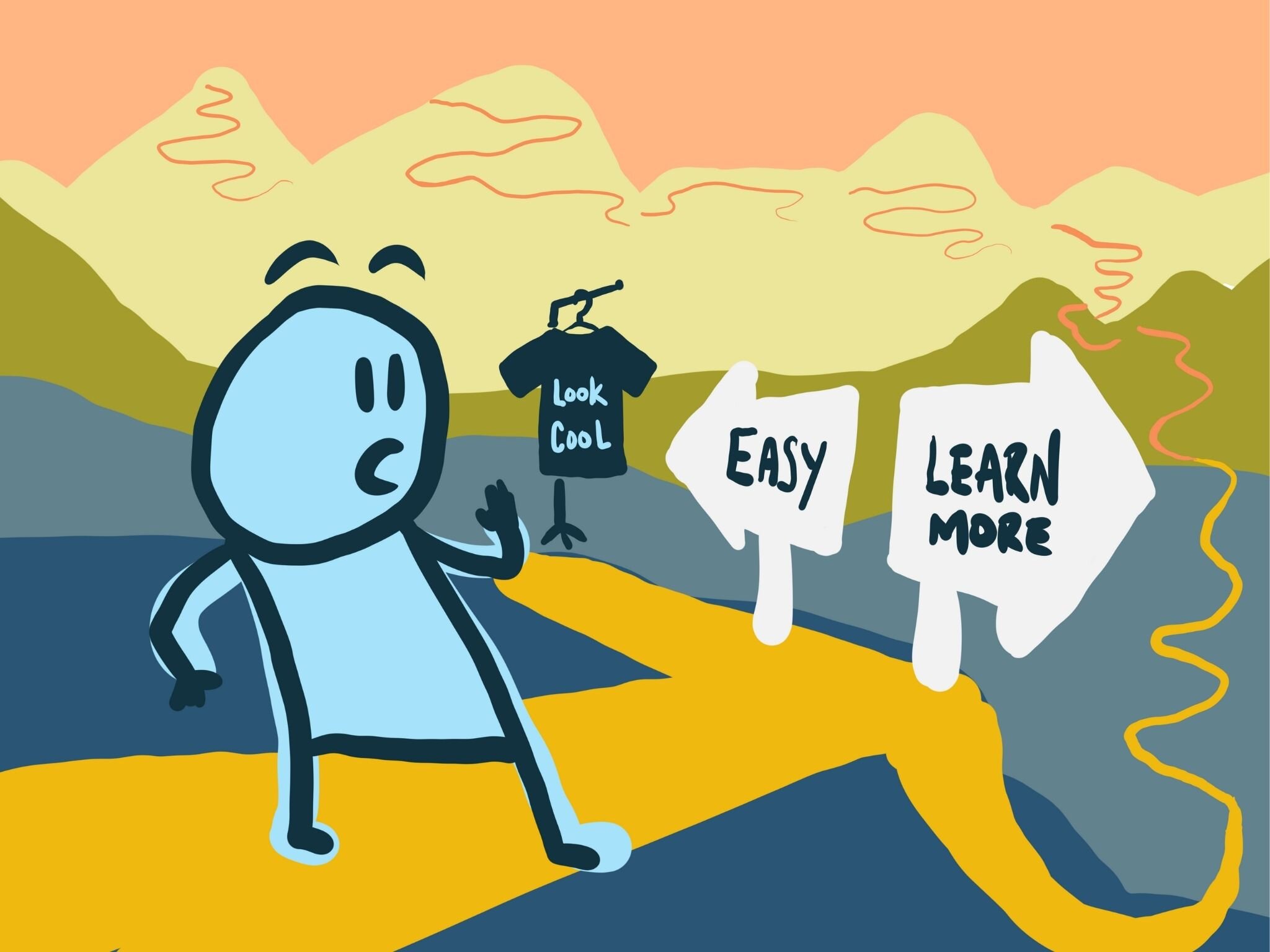Learn or Look Cool: Starting UX With One Reason, Continuing for Another
T-shirt level complexity is on the low side of complex options.
One of the reasons I care so much about UX design is that it creates a culture of learning. Then if we work in teams that use what we learn in and inclusive ethical way, you're in the midst of an organization that can adapt. That may not sound like a beach party, but it sure feels great to be part of.
When I consider places I've worked have learned about through peers I like to look for signs of learning. Is learning encouraged? If not, then what behaviors are encouraged?
Popular to Adopt UX
UX design and systemic minded human centered thinking are fairly widely adopted but not yet universal. Also if an organization has chosen to hire any of the especially human centered systemic disciplines like content strategy, service design, customer experience, and user experience it does not mean they are human centered.
Understanding humans can be used to be extractive and harmful as much as can be used for sustainable caring inclusive decisions for mutual benefit. Just as martial arts can be used for sport, fitness, or defense in emergency they can certainly be used for harm. Such is the way with humans and our tools.
There's enough clear opportunity in human centeredness where both public and private organizations are finding it useful to try.
I still get excited when I see how common and wide UX adoption is in different industries and sub specialties, finance, retail, software, physical products, local and state government. Even if it's not perfect, I feel like it's a start of something positive.
The Presence of UX on the Surface or Deeper
Also I've lived long enough to see healthy movements morph into extractive harsh practices mostly adopted to squeeze engineers into being more theatrically productive. Yes I'm talking bout Agile. That's a separate article or series to consider deeply with themes for example: taking one idea to all cultures needs to be adaptable to be localized and relevant which inherently splits the idea into many forms. Then also any idea widely adopted will take on characteristics and agendas based on existing power structures.
There we go. Existing power structures adopting new ideas. Evolving. That's something exciting to me. If we can be present and involved in the evolution of power structures then we have an opportunity to be of great service to multiple audiences. UX design and any systemic minded human centered practice is well suited to be useful in those situations.
Useful like all human tools. Useful like martial arts. Useful like a business opportunity. Useful like water.
Here's where UX advocacy comes in. Like the complexities of any life choice like choosing a new hobby, adopting a pet, or any significant lifestyle change, adopting UX has hidden complexities.
Appetite for Learning or Looking Cool
The surface of UX is a bundle of perceptions of how design works and what makes it worth paying for. Like when you first sign up for martial arts classes or pick up an instrument. You probably want to look cool and be a better version of you in a convenient way.
Sticking with the lifestyle change, which path do you take:
- Do you allow yourself to be affected by this lifestyle change in more and more ways?
- Do you try to minimize inconvenient change and maximize on convenient benefit?
If you're studying martial arts at a welcoming, encouraging, skillful, enthusiastic place that also holds you accountable and if you commit to being an accountable learning student, you cannot help but to be changed. Lot of significant ifs in that sentence. You might have started out wanting to look cool or do a special move. You might have accomplished the surface goal. Sticking with it means you will be affected enough to eventually adapt to and adopt a new lifestyle.
In this metaphor you've hired a school to help you learn martial arts. Could change that to yoga, painting, public speaking, playing a musical instrument, or other pursuits. The two critical parts are:
- Are you learning from a principled practitioner and teacher who believes in the skill, believes in you, and sees beyond a financial transaction?
- Are you yourself willing to commit and be affected? It doesn't have to be all at once. But it does need to be real observable change.
Being a Principled UX Practitioner Regardless of Your Title
Let's get back to UX and consider this dynamic, from the student in the metaphor to the teacher/practitioner. In the realities of UX skills you are hired by an organization to help on a project. Will you be a principled advocate, practitioner, and teacher of UX practices?
Most organizations I've worked with have been eager to look cool, not as eager to change. So many stories in that sentence, not easy to summarize in one paragraph but I'll try. You will be tested but you will also learn a lot by sticking with principles you care about that connect you to human centered design. Being a catalyst to help teams learn, be more inclusive leaves behind rippling effects for individuals you work with.
You don't have to have a title of designer and you will certainly need to connect with, include, and collaborate with all kinds of skills and titles in order to help teams and orgs learn and adapt. You don't have to get all the protocols, designs, and collaboration right every time. You need to keep at it, keep learning from mistakes and do right by your audiences. You do need to be willing to be a principled catalyst for learning and inclusion from and with as many human beings connected to your product as you can. Learning is power and UX teaches many tools to help teams and organizations learn.

